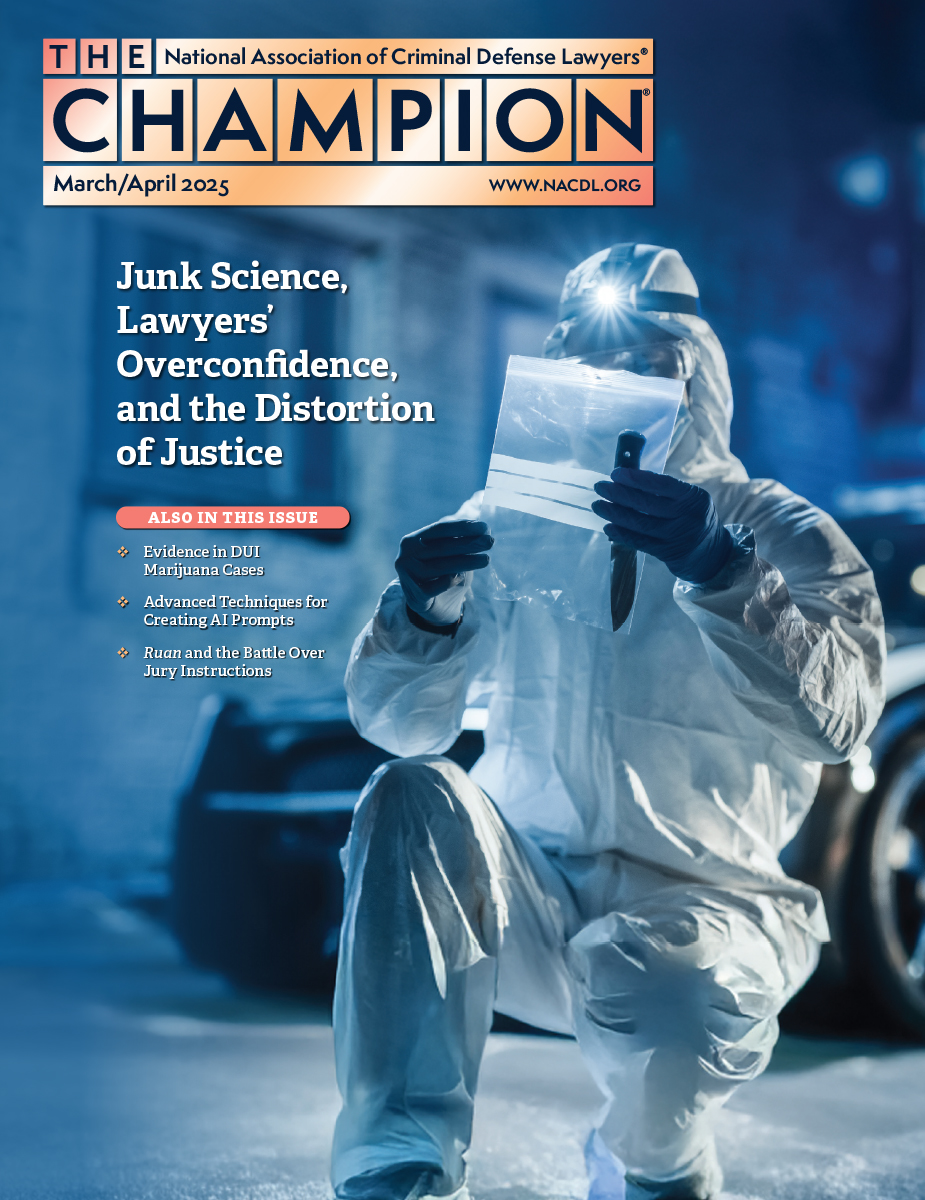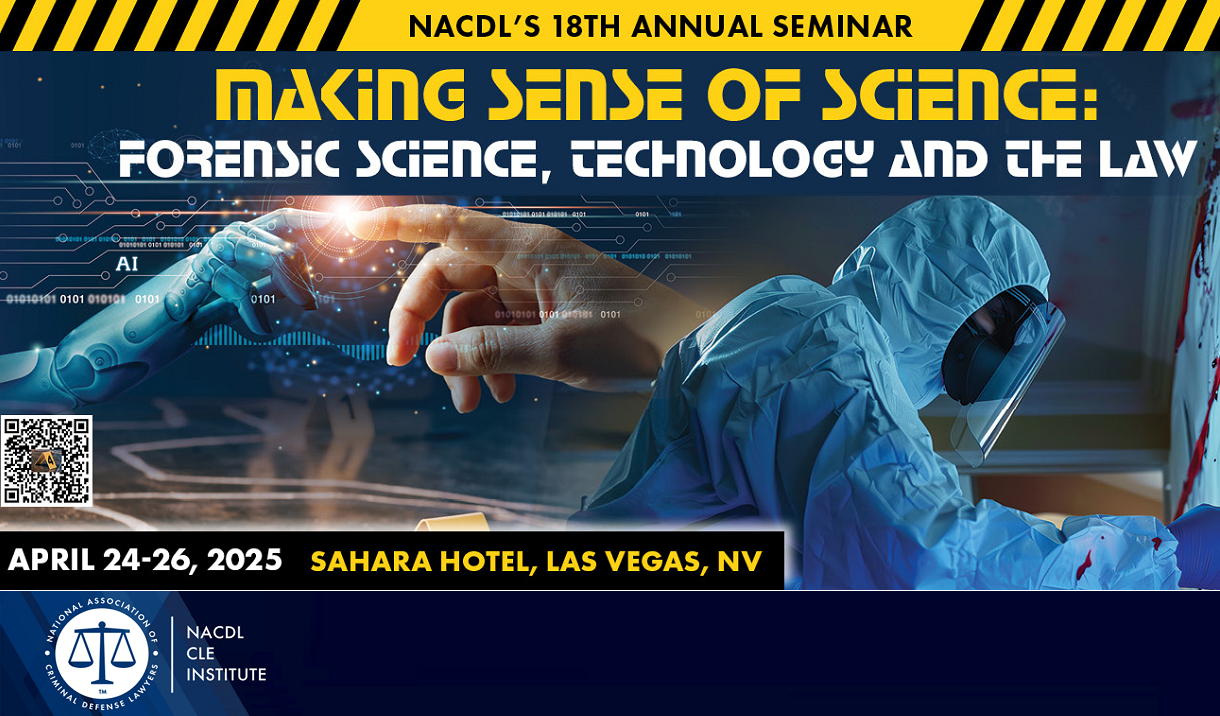Access to The Champion archive is one of many exclusive member benefits. It’s normally restricted to just NACDL members. However, this content, and others like it, is available to everyone in order to educate the public on why criminal justice reform is a necessity.
At the annual meeting in Denver, I presented an overview of criminal justice in our country in mid-2003. The picture is not at all pleasing.
The American criminal justice system is broken and needs mending. For a system which is based on the core principal that the innocent must be protected above all, disturbing instances where the system failed to provide such protection appear in alarming numbers. In one state alone (Illinois), 11 persons on death row have been found to be factually innocent. These are not cases where constitutional error in the proceedings erased a murder conviction. In these cases it was shown that the person convicted and sentenced to die, did not do it. Yet a jury found them guilty, and a judge found that the state should kill them.
In these cases the system was broken, and the flaws almost proved fatal. And these injustices occurred in just one state. It can be said with virtual certainty that other innocent persons are imprisoned on death rows in every state that imposes capital punishment with any frequency. Extrapolating such a failure rate to all felony cases, the occurrences of injustice reach monstrous proportions. As this is written (August 2003), 132 people nationwide have been exonerated by post-conviction DNA test results. We can only guess how many people are now imprisoned who are in fact innocent, but whose claims of unjust convictions cannot be advanced by scientific tests.
We, as lawyers and as citizens of a nation which values justice and freedom, cannot shrug our shoulders and walk away from such indisputable evidence of criminal justice gone awry. A nation which calls itself the land of the free cannot tolerate such a condition.
What is to be done?
Mending all the identifiable flaws will not be accomplished overnight, or even in a year or two. Some small steps can begin now, however. Two types of police investigative procedures are prone to produce erroneous results that lead to wrongful convictions. Both interrogation and line-up procedures badly need to be reformed.
Interrogations should be required by state law in all jurisdictions, and by law or rule in federal courts, to be videotaped from start to finish. See, The Case for Recording Interrogations, The Champion, December 2002. Where good cause shows videotaping is unavailable, then audiotaping should be mandatory. No incriminating statements (or evidence derived therefrom) should be admitted unless these recording requirements are met.
Minimum standards for line-ups and photographic arrays should be similarly required by law or rule. All line-ups should be conducted by an officer who is not involved in the investigation and who has not been briefed on the suspect’s identity. Line-ups and arrays should consist of two separate lines, in one of which the suspect does not appear. Everything said by police about the line-up procedure to a viewing witness should be recorded. As in interrogations, failure to follow these steps should render the results inadmissable.
Suspect conditions
Although police are likely at first to oppose these reforms by knee-jerk reaction, upon careful reflection they should realize that both proposals will protect the police from false claims of coercion or improper influence, just as the defendant is protected from improper police conduct. In addition, evidence that is properly collected will have greater integrity and thus stronger weight than the same evidence acquired under suspect conditions.
NACDL has recently added a lawyer to the national headquarters staff who will concentrate upon promoting efforts in state legislatures to adopt the reform measures described here. This column will focus in coming months on other areas of the criminal justice system in urgent need of reform. For now, however, as to interrogation and line-up reform, let us begin.












